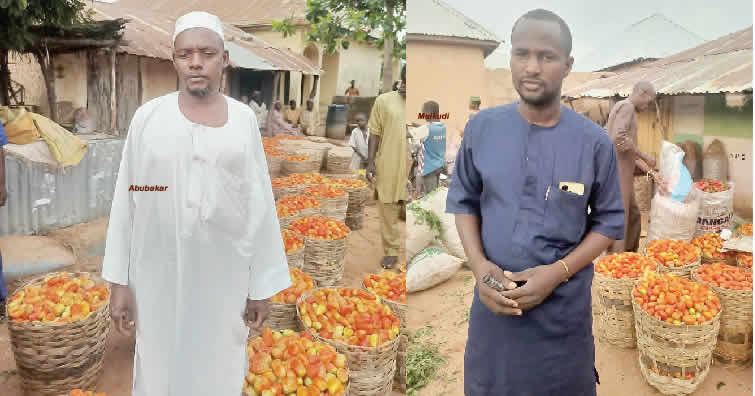In Bula, a small agricultural hub in Gombe State’s Akko Local Government Area, tomato and pepper farmers like 35-year-old Aliyu Maikudi are battling a significant challenge—post-harvest losses caused by a lack of proper storage facilities. Known for its vast fields of vibrant crops, Bula supplies vegetables to major cities across Nigeria, including Kano, Abuja, Lagos, and Jos. However, the absence of essential infrastructure threatens the profits of hardworking farmers.
Maikudi, a father of eight and successful farmer, earns up to N7 million annually from his crops. However, he, along with others in the community, struggles to preserve produce during peak seasons when prices plummet, and surplus vegetables spoil without adequate storage.
“The business is profitable, but without proper storage, we are forced to sell at low prices or watch our crops spoil,” Maikudi said. The rising cost of inputs, such as fertilizer, which has increased from N10,000 to N50,000 per bag, adds to the farmers’ financial burden.
As chairman of the Vegetable Farmers’ Association in Bula, Maikudi has been vocal about the need for government intervention. He advocates for mini-processing factories and cold storage facilities, which would help reduce post-harvest losses and allow farmers to sell their produce when prices are more favorable.
Bula’s strategic role in Nigeria’s agricultural economy is further hampered by the absence of a standard market and farm service centres. Local leaders, including Kasim Mohammed, the Yerima of Bula, stress the need for government support, affordable fertilizers, and investment in infrastructure to tap into the region’s agricultural potential.
Gombe State is Nigeria’s second-largest tomato producer, but farmers like Maikudi warn that without proper storage solutions and infrastructure, the community’s agricultural success remains at risk. While government officials acknowledge the issue, farmers are calling for immediate action to safeguard their livelihoods and ensure the state’s agricultural future.




